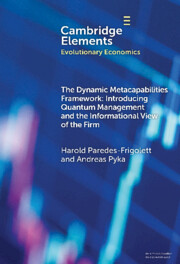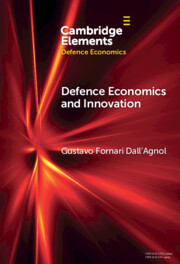The Dynamic Metacapabilities Framework
The view of dynamic capabilities in evolutionary economics as being based on capabilities comprised of routines has so far precluded their integration in evolutionary economics. This Element contributes to such integration by introducing the dynamic metacapabilities framework. Borrowing from quantum mechanics, dynamic metacapabilities assume that resources and capabilities, rather than being created ex-nihilo, result from bundles of information 'decohering ' to bundles of resources and capabilities as new information becomes available to the firm. Operationalized by a management paradigm we call 'quantum management, ' dynamic metacapabilities contribute to integrating dynamic capabilities in evolutionary economics and to resolving the ongoing debate on what dynamic capabilities are by postulating an informational view of the firm according to which firms 'evolve ' with strategy throughout a lifecycle governing the transition from dynamic 'metacapabilities ' to dynamic capabilities and onto ordinary capabilities.
Product details
February 2025Hardback
9781009627610
84 pages
229 × 152 × 6 mm
0.259kg
Not yet published - available from June 2025
Table of Contents
- 1. Introduction
- 2. Previous work
- 3. The dynamic metacapabilities framework
- 4. Quantum management
- 5. Discussion
- 6. Conclusions
- References.




